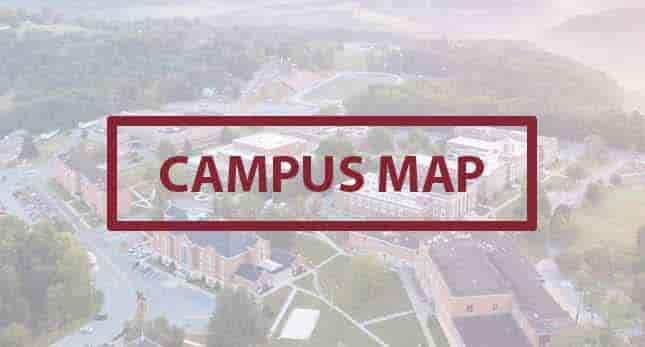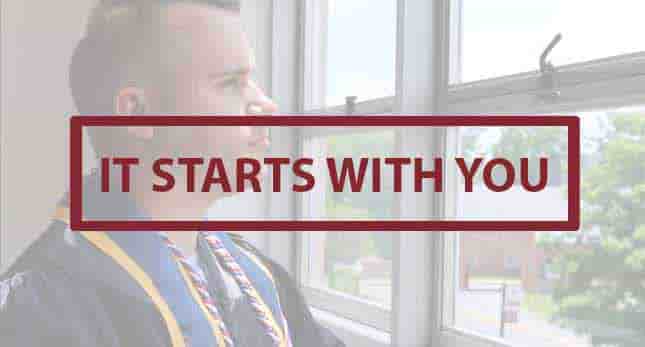Behavior Support Collaborative Center
“PBS is an evidence-based strategy used to improve independence, decrease behavioral challenges, teach new skills, and improve overall quality of life of individuals who are experiencing significant maladaptive behavioral challenges. PBS is a positive, proactive approach that focuses on preventing and intervening with challenging behaviors. The PBS approach can be used to work with anyone, not just individuals with intensive needs.” (West Virginia Department of Health and Human Resources Bureau for Behavioral Health, RFP, 2020)
Positive Behavior Support training is available to any interested person who is involved with individuals who exhibit problem behaviors or disabilities in various settings. There is no pre-requisite, prior knowledge or degree required to enroll in this training. This training will utilize Canvas as a learning management platform.
Positive Behavior Support training & mentoring program will last a total of 10-weeks, and will coincide with Concord University’s academic calendar. The first 5-weeks will consist of a 5-week online training. The 5-week online training will be supported, and directly followed by, a 5-week mentoring program which is included in the original $99 fee. Individuals must participate in both 5-week sessions!
The initial 5-week training is offered in a completely online asynchronous format, and will include integrated live-video interaction with the Program Coordinator, Jesse Yuhasz. This training will utilize Canvas as a learning management platform to administer a series of self-paced modules to be completed on a weekly basis. Live video sessions will be during the first and last modules; trainees will be expected to be present and involved. Modules will consist of direct instruction, various assignments/activities, and quizzes.
The subsequent 5-week required mentoring program will consist of:
- A weekly 2-hour meeting (one 2-hour meeting per week) with a PBS endorsed professional to discuss researched based, targeted areas of implementation
- Opportunities for mentees to ask mentors about relevant issues as they apply learned concepts and skills in real-life environments
- Assignments will be given weekly to help mentees focus on engagement and practice targeted skills, such as: operationally defining replacement behaviors, teaching replacement behaviors, response to problem behaviors
- In addition to live meetings, a discussion forum will be open in Canvas (LMS) for mentees to interact with other participants and mentors.
Upon successful completion of the training & mentoring, individuals will receive a grade of pass/fail for a Concord University EDPD course. Participants will be able to request official transcripts following the conclusion of each academic semester.
Training Schedule:
- January 15th – March 15th
- Match 4th – May 3rd
- May 20th – July 10th
- Fall session: TBD
- Participant submits the online Enrollment Form to Program Manager, Jesse Yuhasz.
- Once form is submitted, Program Manager will enroll student into the online Canvas platform. Additional steps, including payment, will be required once training begins.
- Participant will be given access to online Positive Behavior Support training in Canvas. This training will utilize the Canvas platform for content delivery, and integrated live interaction.
- Upon successful training completion, participant will receive a grade of pass/fail for a Professional Development (EDPD) course at the end of Concord University’s academic semester.
- At the end of the academic semester, participants can request an official transcript documenting successful completion of Positive Behavior Support Training.
How much will this training cost?
Training cost is $99. This fee is non-refundable. Should an individual not complete the training, they will not receive a refund. If a participant does not complete training, but would like to re-enroll at a later time, they will be required to pay again.
Who can complete this training?
Training is available to any interested person who is involved with individuals with problem behaviors or disabilities in various settings. There is no pre-requisite, prior knowledge or degree required to enroll in this training.
How long will the training take to complete?
Training will last 5 weeks. Trainings will coincide with Concord University’s academic calendar, and will conclude at the close of each semester.
How is the training formatted?
Training is completely online, and will include integrated live-video interaction with the Program Manager, Mr. Jesse Yuhasz. The training will consist of a series of self-paced modules to be completed on a weekly basis. This training will utilize Canvas as a learning management platform.
What will I need to complete the training?
Participants will need access to a computer, or equivalent electronic device, on a weekly basis, and access to wi-fi. There is no textbook, or additional course materials needed. Participants will need to have an active and accessible personal email address.
What is the grading process?
Training will be graded at completion as pass/fail. Successful completion of all modules, knowledge checks and accompanying activities will be required for successful training completion. Final grades will be distributed at the end of each Concord University semester.
When will I receive my transcript?
Transcripts will be able to be requested at the close of each academic semester.
In compliance with the agreement set forth between the United States Department of Justice (DOJ) and the WV Department of Health & Human Resources (DHHR), the Behavior Support Collaborative Center at Concord University seeks to build workforce capacity to support individuals who have challenging behaviors. The Behavior Support program at Concord University will collaborate with licensed behavioral health agencies and other agencies to increase behavior support workforce capacity and build sustainability of services, while accomplish the following:
- Increase behavior support services to children, youths, adults, and their families through both direct implementation and training in homes.
- Increase knowledge and ability of individuals, families, providers, and agencies to manage behaviors and the challenges associated with those behaviors.
- This will be accomplished by Educating, consulting, and raising awareness of behavior support with agencies, hospitals, schools, court systems, community providers, and other systems.
- Reduce child, youth and adult psychiatric admissions, out-of-home placements, out-of-state placements, school disciplinary actions, days absent from school or work, and juvenile justice or other court involvement.
- Reduce the occurrence of challenging behaviors and improve the quality of life of children, youths, adults, and their families who receive services.
- Increase number of Wraparound facilitators, mobile crisis team members, Regional Youth Service Centers, and Community Engagement Specialists with a higher level of skill to deal with youth behaviors and needs and enhanced well- being and satisfaction in their role as an agency provider.
- Provide at least 2 trainings per quarter to emergency first responders on using behavior support when responding to calls for individuals experiencing behavioral health crises
- Association for Positive Behavior Support (APBS)
- WV Association for Positive Behavior Support (WVAPBS)
- WVU Center for Excellence in Disabilities: Positive Behavior Support
- Marshall University: WV Autism Training Center


